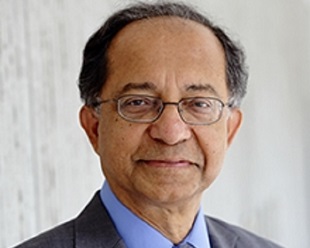
To eliminate it, we must first improve our understanding of its mechanisms and incentive structures
COMMENT | KAUSHIK BASU | Imagine the following scenario. A political outsider wins a critical election by promising to root out corruption. Even if that is a sincere intention, upon assuming office, they will quickly realise that it is best to focus on the critics of the government and opposition political parties, since going after one’s own allies will erode one’s political base. Hence, an unintended consequence of this original plan is to plant the seeds of cronyism. Even while targeting corruption, by protecting friends and doling out favours to allies, the leader strengthens their hold on power, and the country slides toward authoritarianism. In the end, corruption, too, could end up rising rather than falling.
This story has been repeated numerous times in countries across the developed and developing world. Naturally, such a transition can have huge negative effects on political leaders’ own countries. But in today’s globalised world, the consequences of cronyism often extend beyond national borders.
Russia is a case in point. In his 20-plus years in power, as either president or prime minister, President Vladimir Putin has built a plutocratic regime characterised by a particularly pernicious form of crony capitalism. While his friends and close allies have captured the bulk of Russia’s wealth creation over the past two decades, ordinary Russians are increasingly finding themselves in a stagnant, sclerotic economy.
One consequence of Russia’s invasion of Ukraine is that Putin’s corruption has morphed into a global problem that continues to reverberate across Europe, Africa, Asia, and the Americas. While the natural response is to blame the political leaders who have facilitated this trend, that is not particularly helpful. To eliminate cronyism, we must first improve our understanding of the mechanisms and incentive structures that propel leaders down this path of cronyism and greater corruption.
Indonesia’s history provides an illustrative example of the dynamics that prompt political leaders to embrace cronyism. When the dictator Suharto rose to power following a US-backed anti-communist coup in the mid-1960s, he promised to put an end to the corruption of his predecessor, Sukarno. But Suharto’s pro-Western, business-friendly “New Order” proved to be just as oligarchic and ruthless as the previous regime. Similarly, Putin targeted the oligarchs that prospered under his predecessor, Boris Yeltsin, but he ended up simply replacing many of them with his own cronies.
To understand the underlying process, suppose that these leaders were genuinely committed to combating entrenched corruption, as many political leaders who have come to power have been. Although severing the symbiotic relationship between business and political elites is undoubtedly complicated, a recent study by the University of Vienna economist Dmitriy Knyazev suggests several ways of doing so. For example, policymakers could impose fines on state officials who take bribes or reward citizens who report such crimes.
In countries rife with corruption, leaders have no shortage of potential suspects to investigate and prosecute. As I highlight in a recent paper, however, increased scrutiny may actually exacerbate the problem. The logic is simple. After coming to power on an anti-corruption platform, leaders realise that fighting corruption by going after everyone is to risk losing one’s own supporters. Hence, unless the political leader is a person of exceptional moral fiber, the best way to fight corruption is to zealously target political rivals and their followers, while exempting allies and confidants. Corruption may indeed fall among political rivals, who are under extra scrutiny, but it will rise among allies and friends, who will soon sense that they are safe. Depending on the elasticities of corruption among the two groups, aggregate corruption and cronyism may end up higher.
To prevent such an outcome, the key requirement is for governments to set up independent institutions entrusted with reining in unlawful behavior. Singapore’s Corrupt Practices Investigation Bureau, established in 1952, is a prime example of the benefits of empowering a government agency with the necessary autonomy to investigate and pursue cases in the public interest. Although Singapore’s political system has major flaws of its own, it has achieved remarkable progress in combating corruption.
In today’s interconnected world, however, it is not enough for each country to fight corruption within its own borders. Since cronyism and corruption in any country can have far-reaching economic consequences, the only way to address this challenge is through multilateralism. To be sure, many obstacles stand in the way of effectively combating corruption globally. Reaching an agreement on stringent international regulations would be a good starting point.
*****

Kaushik Basu, a former chief economist of the World Bank and chief economic adviser to the Government of India, is Professor of Economics at Cornell University and a non-resident senior fellow at the Brookings Institution.
Copyright: Project Syndicate, 2023.
 The Independent Uganda: You get the Truth we Pay the Price
The Independent Uganda: You get the Truth we Pay the Price



